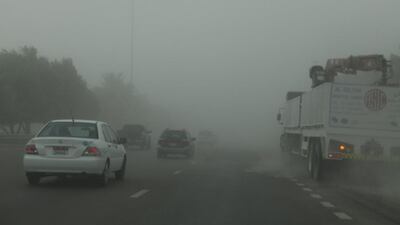ABU DHABI // Expatriates who hold driving licences from more than 30 countries – including the UK, US, Canada and Australia – who are exempt from passing tests in the UAE, should take a theory and practical exam.
This is according to some residents and experts who said the tests would ensure the person receiving a licence has the knowledge and skills to drive safely.
A few years ago Golnaz Hajbiglou was involved in a crash at Jumeirah Lakes Towers in Dubai. It could have been avoided if the other driver had knowledge of local road rules, she said.
The researcher, 41, said: “The driver who hit our car said ‘I’m sorry, I just came from the UK and I’m not familiar with the roads here’. For me, that’s not acceptable. The driver was on the wrong side of the road. If she had gone through the same process as everybody else, that accident could have been prevented.”
More than 30 nationalities are allowed to convert their driving licences without sitting a test.
These are the GCC countries, Austria, Belgium, Spain, France, Ireland, Norway, Holland, Italy, Sweden, Turkey, Greece, Switzerland, Denmark, the UK, Poland, Romania, Finland and Portugal. Also on the exempted list are South Africa, Canada, the US, Singapore, Hong Kong, South Korea, Japan, New Zealand and Australia.
“If they attend theory lessons, they’ll have an idea how it is to drive here,” said Ms Hajbiglou, who got her licence in Sharjah in 2001. “Drivers from certain countries simply convert their licences and do not have any clue what’s going on. If they fail the test, then they should take the courses. Everyone – regardless of nationality – should go through the process.”
In 2009, the British consultancy transport research laboratory presented proposals aimed at unifying licensing, training, and testing procedures in the UAE. One suggestion was requiring expatriates who are allowed to convert their licences to take a theoretical and practical exam first. “The population of the UAE is extremely diverse and this is typical for most of the Gulf countries,” said Dr Britta Lang, the head of the TRL in the UAE.
“There are people from more than 150 nations applying for driving licences. We’re not dealing with people from one particular licensing regime, but hundreds of different backgrounds. As we don’t have a federal highway code, there is little reliable guidance available as to how people should drive. The only way to ensure a driver licensed in a jurisdiction is competent is through testing.”
Dino Kalivas, chairman of the International Road Federation’s driver education and training committee, said the TRL’s proposal in 2009 was still relevant.
“Many expats should at a minimum be required to complete driving theory classes,” he said.
Certain conditions are quite specific to the UAE, such as driving in heavy fog and desert conditions, Mr Kalivas said.
“It is always beneficial for drivers to refresh their knowledge of new road rules that are introduced over time,” he said.
“Theory courses should also enhance cognitive aspects of driving such as hazard perception, wearing seat belts, and developing counter-measures for common dangerous driving behaviour in the UAE such as sudden deviation and tailgating.”
However, not everyone agreed. Jennifer Veljovik, 39, a German who has lived in Dubai for more than 30 years, said there was no need for all expats who hold foreign licences from exempt countries to take lessons or tests.
“If the proposal is implemented, then OK. What applies to others should apply to us as well. But I think the testing should be for people who are new to Dubai. It’s more about learning ethics and good driving behaviour on our roads.”
rruiz@thenational.ae

